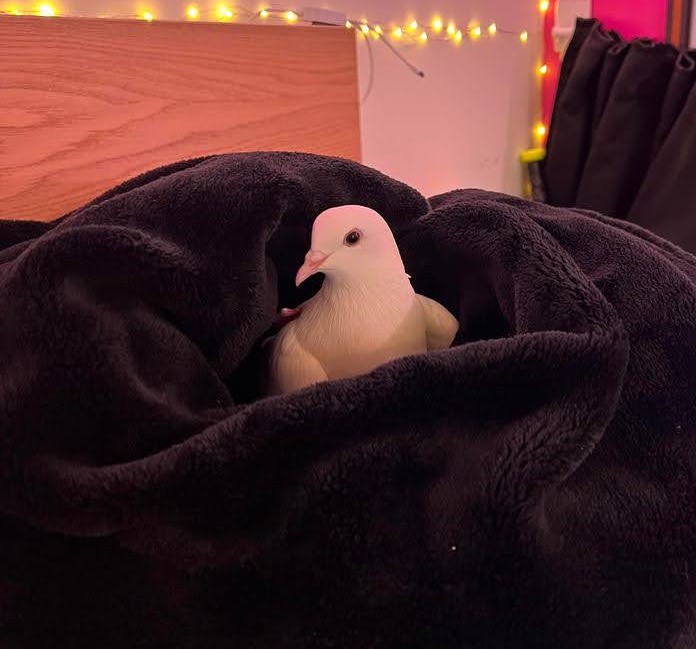Safety
As we are sure it goes without saying, safety is of utmost importance!
Getting loose outdoors could be a death sentence for your bird. Your bird is a domestic or otherwise nonreleasable pigeon or dove, which means being outdoors unenclosed is never safe for them. Your pigeon or dove is easy prey for predators including hawks, ravens, gulls, cats, raccoons, owls, rats & more; many of which can pull a bird off your shoulder or out of your arms.
Birds need vet care just like dogs and cats do. Don’t wait for an emergency to occur! Before you bring your feathered family member(s) home, make sure to find an avian vet (most dog and cat vets do not also see birds), and confirm they are comfortable seeing pigeons and are accepting new patients. An annual wellness exam is highly recommended.

If you or your vet administer a dewormer at any point, remember: NO FENBENDAZOLE (also commonly known as PANACUR). It’s a dewormer that is safe for parrots but highly toxic to pigeons and doves. If your avian vet sees more parrots than pigeons or doves in their practice they may not be aware of this, so please tell them proactively.
It is easy for birds to quickly go through a window or door that is left open or ajar. Make sure to always close doors behind you. Test all window screens to be certain they are intact and can withstand pressure.
If you want to take your bird on an outing, the ONLY safe way to do so is inside a pet backpack or stroller. Several adopters have lost their birds due to the birds getting out of pants or harnesses, or having leashes malfunction.
It is NOT safe to take your bird outside on a leash the way you would a dog. Never take your bird out of the house or aviary unless they are secured in a pet backpack or stroller.
You also want to keep birds out of the kitchen and away from toxins and fumes. Teflon pans are deadly for birds, as are household chemicals, such as bleach. It’s best to switch to natural cleaning products and bird-safe cookware. Some foods are toxic to birds, such as avocados, asparagus, and onions. Please visit this site for a list of foods to avoid.
Do you need help navigating the process of international relocation with your birds? Please visit this site.
Please let us know if you have any questions!
